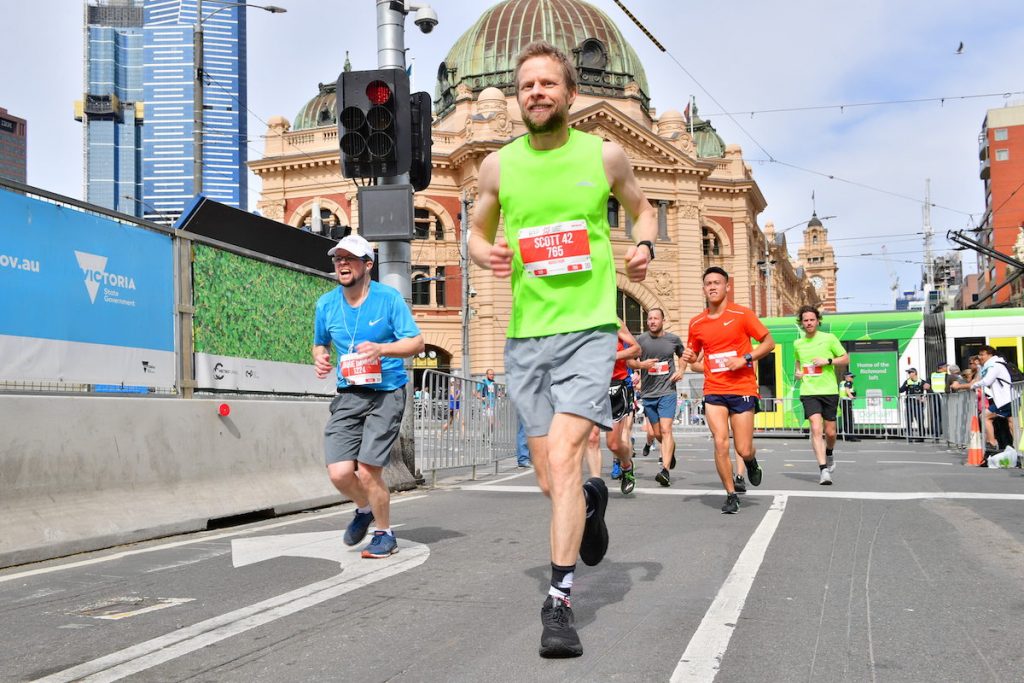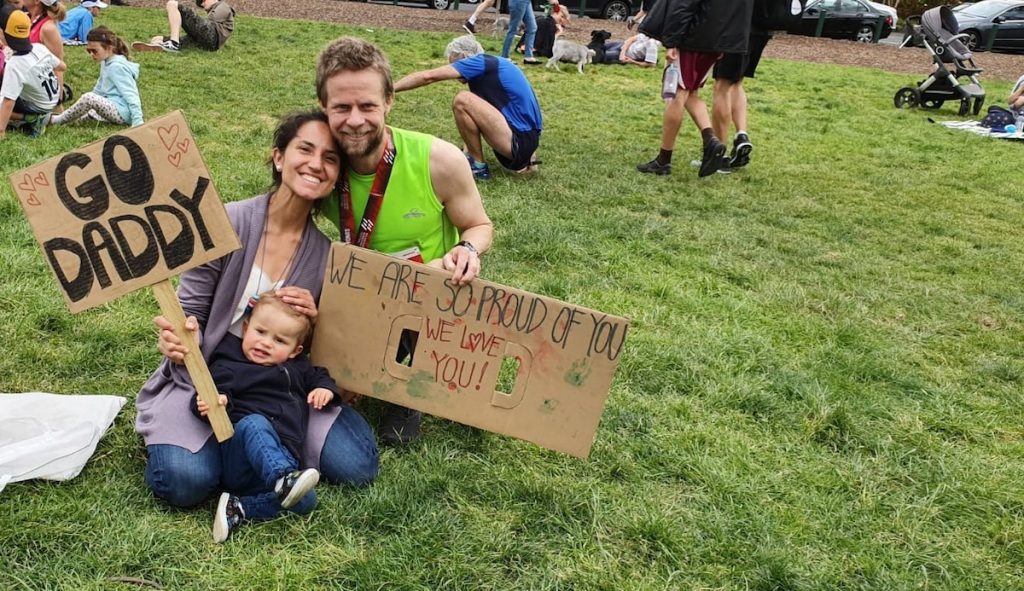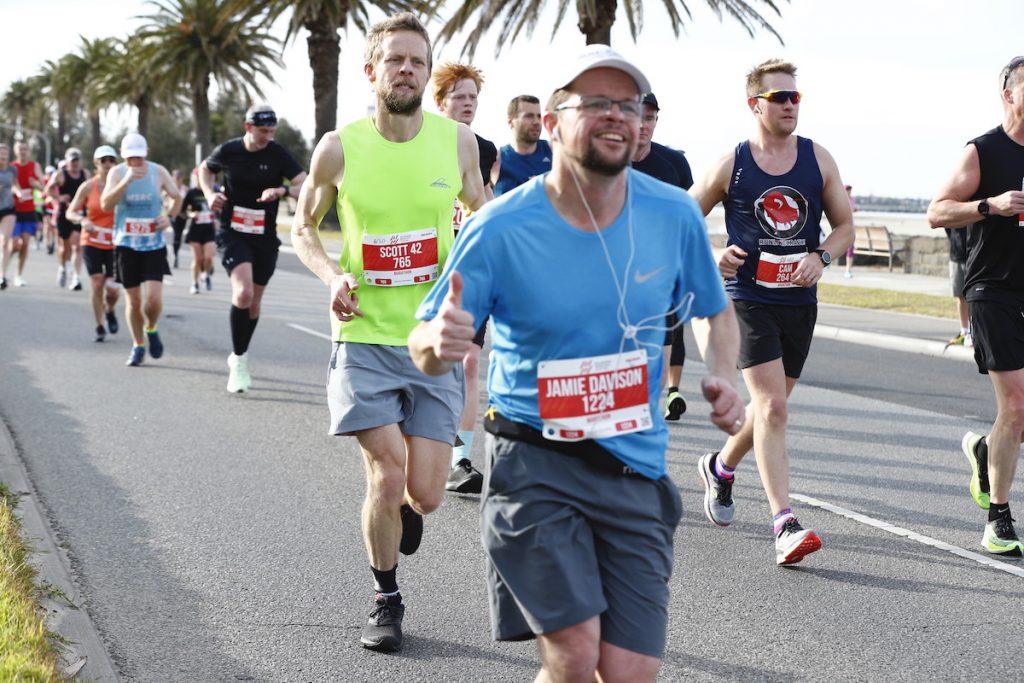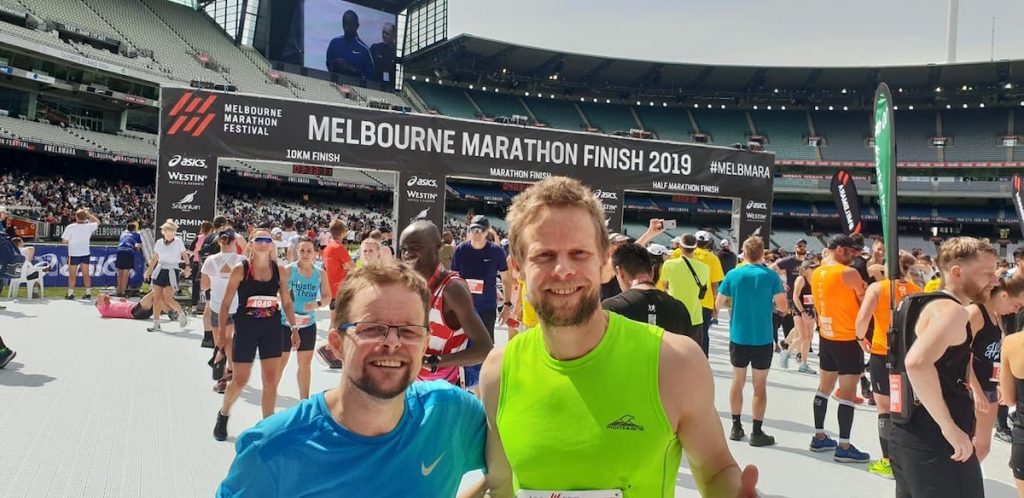
The Hard Thing Rule
Have you heard of The Hard Thing Rule? It’s a concept developed by Angela Duckworth, who’s an expert on the subject of grit. She uses this rule with her family and recommends it to parents who want to develop gritty kids.
The rule has three parts. Here’s how it works….
- Everyone in the family (Mum and Dad included) has to do something that’s hard.
- You must finish whatever you start (no quitting halfway).
- Everyone gets to pick their own hard thing.
The idea is to learn ‘persistence’ by doing something hard, which requires daily deliberate practice. And to pursue something of personal interest, which may develop into a ‘passion’.
You see, according to Duckworth, after years of studying high-achievers, the secret formula for developing grit is the combination of persistence and passion.
She also has this to say about grit:
“Grit is living life like it’s a marathon, not a sprint.”
Angela Duckworth
My hard thing for this year
So with all this in mind, this year, I decided my hard thing would be to run my first marathon.
And last week, I’m happy to say, I completed this goal.
Was it hard? You bet. It’s definitely one of the hardest things I’ve done. But like all hard things in life, it taught me a lot.
And with so much time to ponder life during the countless hours of training, I started thinking about some of the lessons I’ve learned from the experience. After all, if I’m going to dedicate almost six months of my life to something, I thought the least I could do is to also get an article out of it 🙂
So here goes…. My 12 life lessons from running my first marathon.
Listen to this podcast episode, where I discuss three of the key lessons. Or read below for the full list.
1. A goal without a plan is just a wish
For any big goal, you need a plan to achieve it. And a marathon is no different. You can’t just turn up on the day and wing it. It takes months of preparation.
When you start looking for marathon training plans, there are many available. They vary based on your fitness level, the amount of time you can commit and the desired result. The key is to choose a plan you will be able to stick to. And then, build up slowly but consistently. You can’t go from zero to hero in one day, it takes time and persistence.
But you definitely need a plan!
I’ve done plenty of casual running in the past. I’d often go for a jog a couple of times a week, but there was never any structure to it. I’d just run for 30 minutes or so and then stop.
However, running a marathon is very different. The training plan follows a system. Each individual run has a specific purpose. Some are longer runs to build endurance, some are faster runs to build speed and others are recovery runs. But they are designed to complement each other and work together to get you to your end goal.
So, if you are running a marathon, start your training early. Ideally, allow at least six months. Set yourself a target. Work out how much time you have available to commit. And then choose a training plan that matches your goal. And once you have a plan, be consistent and just follow the process.
It’s the same with anything in life. Having a goal is important. But what’s more important is to have a process to get you there. And even more importantly, you need to take consistent action towards your goal.
2. Sometimes a coach can really help
Everyone needs a coach. It doesn’t matter whether you’re a basketball player, a tennis player, a gymnast or a bridge player.
Bill Gates
Like Bill Gates, I am a big believer in the value of coaching. Whilst you don’t necessarily need a coach, if you want to supercharge your results in any area of life, then a coach can be a valuable resource.
We know that professional sportspeople have coaches. In fact, they often have whole teams of coaches. And lot’s of high profile business people and celebrities also employ coaches to help improve their results.
But you don’t need to be a celebrity or a Fortune 500 CEO to use a coach, there are lots of options available for people on all budgets.
When I decided I was going to run a marathon, I started by talking to a running coach (shout out to Sam Mclean @RunWithSammy)
I only did a couple of sessions with my coach, right at the start of my program, but it made a huge difference and set me off in the right direction.
Firstly, he took a look at my running style and was able to point out a few weaknesses and inefficiencies in my technique. These were small things that were easy to correct. He also helped me think about things like equipment, diet and mindset. And most importantly, he continued to check in on my progress.
This is why coaches can help. They give you a different perspective, bring some new ideas and can help keep you accountable to your goals.
3. Setbacks are inevitable
Like any big goal in life, you are going to suffer some setbacks along the way. It could be injuries, illness, bad weather or other unforeseen events. Many of these things are out of your control.
So when you encounter these inevitable setbacks, don’t let them throw you off your long term goal. The key is to be focused, but also flexible.
Focus on the things you can control and be flexible about the things you can’t control. It’s a very stoic approach to life.
“The chief task in life is simply this: to identify and separate matters so that I can say clearly to myself which are externals not under my control, and which have to do with the choices I actually control.”
Epictetus
4. Small steps will get you there faster
This was something I learned from my running coach. There’s a metric they use in running which is called cadence. It’s essentially the number of steps you take per minute. You can think of it a bit like the gears on a bike.
One of the errors many rookie runners make is to take bigger strides in an attempt to go faster. However, what I learned is that by shortening your stride and increasing your cadence, not only do you go faster, you also conserve your energy and prevent many of the more common injuries.
It’s interesting, isn’t it? Small steps work more effectively over the long run. It reminds me of this quote from James Clear.
“When making plans, think big. When making progress, think small.”
James Clear
5. Family support is important
Training for a marathon is a big commitment of time. I estimate I did at least 100 hours of training during the six months leading up to the event. You can’t do this without the support of your partner and your family.
It’s the same with any big personal goal. Whether you are setting up a new business, organising a big event or working long hours to earn a promotion. Whilst you may be the one doing the work, it’s important to have the support of your loved ones and to know that you are in it together. Your goal is their goal and vice versa.
It was often hard to head off on a long training run and leave my partner at home with a one-year-old baby. I felt guilty at times. But it was great to know I had her support and it made it all the more special to have the family cheering me on and waiting for me at the finish line.

6. You get out what you put in
On the day of the marathon, I saw quite a few people who appeared to have turned up without having done much preparation. I can tell you one thing, they did not seem to be enjoying themselves.
A big goal like this is not something you want to half commit to. And the reality is that the more effort you put into, the more you learn from the process and the more you enjoy it.
When I think about other important goals, like your career, or being a parent, it works the same way. The more you ‘show up’ and the more passion you put into the job, the better you will perform and the more you will enjoy it.
My dad always told me, “if a job is worth doing, it’s worth doing well”. And it’s true. If you are going to do something, why not commit to it 100%, put in the work and give it all you’ve got.
7. It’s about the journey, not the destination

Running a marathon takes a long time, both on the day and during the months of preparation. Whilst the end goal is to cross the finish line, if you only focus on that, you miss the opportunity to enjoy each step of the journey along the way.
For instance, during training. You could choose to treat each run as a chore. A task to be ticked off the list. Or you can treat it as a chance to get some fresh air, explore a new running path, listen to some music, or a podcast if that’s your thing, and really enjoy the time.
The same goes on race day. I ran in the Melbourne Marathon where the course passes some amazing landmarks. There were people set up along the side of the road, DJs playing tunes and little kids holding signs. If you are staring at your feet or watching the clock the whole time you can miss all of this.
Often in life, we are focused on where we want to get to. The next promotion, the next big purchase or the next holiday. But if we are constantly thinking about the future, we forget to enjoy the present.
8. Taking rest days improves your performance
This was another key thing I learned from my running coach. Even the most intense marathon training programs include at least two rest days a week.
And the serious runners take their rest days very seriously!
They consider the rest days of equal or greater importance to the training days. And on these days they try to remain as inactive as possible and avoid doing anything strenuous. Because they’ve learned that a day of total rest delivers better results than a day of partial-rest or yet another day of training. It lets your body recover completely so you can go harder the following week.
Sometimes we think that hard work and grind is what’s most important for success. We boast about long work hours or lack of sleep like it’s a badge of honour. But the reality is, by taking some time off and recharging, you actually get a better result in the end.
So take a take that vacation, leave the office on time and get a good night’s sleep. Make sure you switch off completely. By doing so, you’ll come back stronger and be more creative, efficient and productive.
9. Everyone is doing the best with the resources they have available
It’s amazing in a big event like the Melbourne marathon. With over 7,000 runners, there are people of all ages, sizes and abilities.
Some are running their first marathon, some are running their thirtieth. Some are professional runners, others squeeze in their training between full-time jobs and family commitments. But in all cases, they are doing the best with the resources they have available.
It’s a great lesson to remember in life. You can’t judge everyone by the same standard. Everyone has different abilities, priorities, circumstances and resources. There is always going to be someone who is better off than you and there is always someone worse off.
So don’t compare yourself to others. Look at yourself and ask: “am I doing the best with the resources I have available?”
10. The world is full of wonderful random strangers
It’s an incredible atmosphere on the day. In addition to the competitors, hundreds of volunteers have given up their time to help out. There are also thousands of people who come along to cheer you on. Many of these people don’t actually know anyone in the race.
Little children are handing out snakes and jelly beans, and you hear strangers yelling your name because they’ve read it on your race bib. It really spurs you on.
During the race, we passed the same lady six times. She kept moving around to different points on the course. She was by herself, wearing a huge smile on her face and carrying a placard that said ‘go random strangers’. I have no idea who she was, but I felt like I knew her by the end of the race.
This show of support from the public was truly amazing to witness. I might be getting carried away here, but I think it restored my faith in humanity 🙂
11. We all do better together
Athletes rarely achieve PBs whilst running alone. Most records are set in the company of others.
The night before the Melbourne Marathon, on the side of the world, a historic moment in sport was achieved when Eliud Kipchoge from Kenya became the first person ever to complete a marathon in under two hours.
It’s an incredible achievement that was once thought impossible. But what’s interesting is that it wasn’t done at a regular marathon. In fact, it doesn’t qualify as a world record, because the whole thing was stage-managed to give him the best chance of success.
The sponsors had chosen a perfectly flat course in Vienna, waited for the perfect time of year and controlled all the variables to be in his favour.
And one of the most important factors that helped him achieve this incredible time was the other professional runners who took it in turns to run with him. They served as pace setters and helped form a human windshield to carry him along.
Whilst it’s still an incredible individual performance, the point is he would not have achieved it if he was running on his own. He ran faster by having others run with him.
I found the same thing during my marathon experience. Most of the training I did by myself. But for some of the longer runs I teamed up with a training partner, who in my case was my brother.
What we discovered was that we both ran much better times and felt less tired when we trained together.
Likewise, on the day of the marathon, we ran the whole 42kms (26 miles) together and we both did a better time than we would have done individually.
Humans are social creatures and generally, if we work together we all achieve better results.

12. Tape your nipples boys
This may be the one lesson I learned that can’t be applied to other areas of life, but I wanted to share it anyway.
Over four hours, chaffing can be extreme. I saw several guys wearing blood stains on their shirts, exactly where their nipples had been rubbing.
So vas-up, or tape-up, or do whatever you need to. It ain’t sexy, but it works.
Maybe that’s the life lesson…. Sometimes you don’t need to be fancy, you just need to get the job done!
Hard thing done!
So that’s my ‘hard thing’ done for this year. It’s now time to start thinking about next year’s challenge. Any suggestions?
Thanks to the Melbourne Marathon organisers for an amazing event and to all the volunteers who gave up their time to help. Also to the random strangers who came out to support us.
A special thanks to my training partner and brother who ran with me the whole way. It made the whole thing even more amazing to share it with him.
It was a truly memorable experience and I definitely recommend doing something like this for anyone who’s thinking about it.
Related Articles
- Ep. 43 – Life Lessons From Farming, with Kane Brisco (podcast interview)
- Ep. 44 -Life Lessons From Gaming, with Eric Siu (podcast interview)
- 8 Life Lessons From The Stoics (article)

Congratulations Scott!! Beautiful article. You did such a hard thing and we really learnt a lot with your experience. Thank you for sharing it!!!
I missed out on doing the Melbourne marathon this year due to COVID. But I cam across your article and it made me reminisce about past marathon experiences. I can’t wait for my next one now. Thanks for sharing these lessons, I agree with them all.
glad you enjoyed the article Trent. And good luck with your next marathon. It sounds like you’ve well and truly caught the running bug!